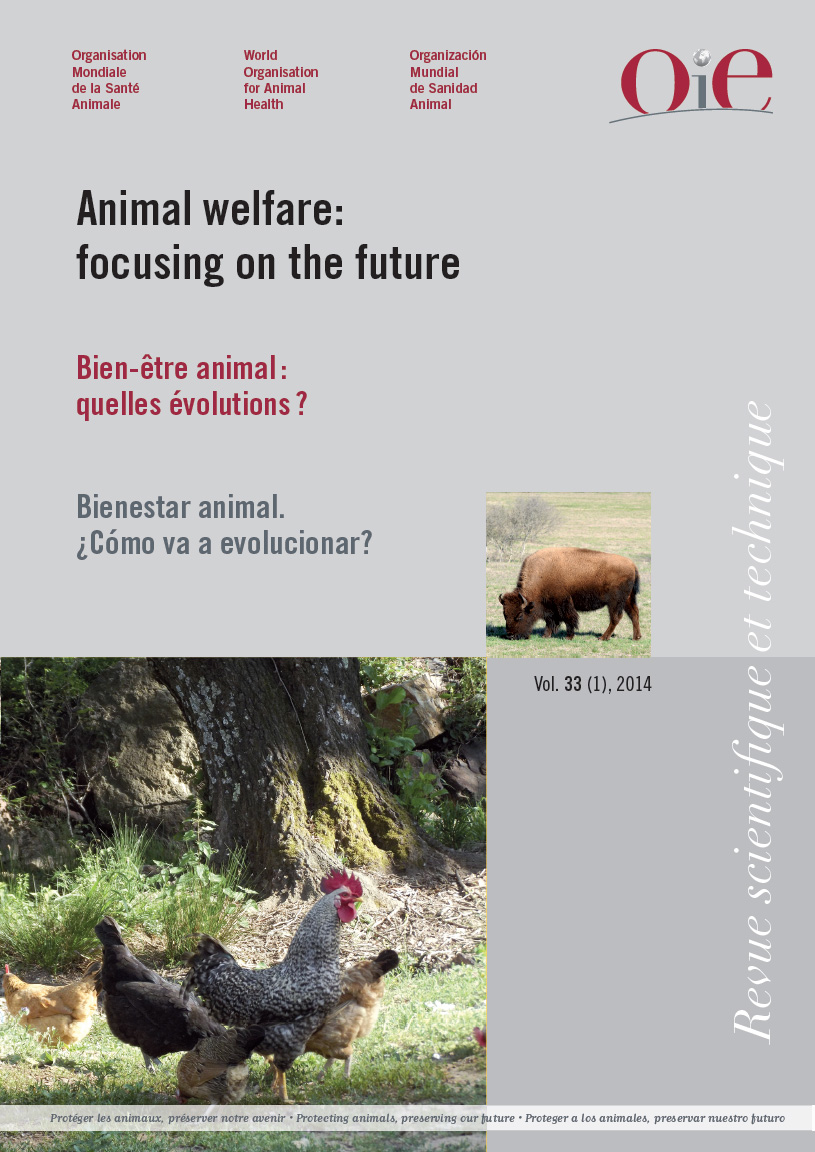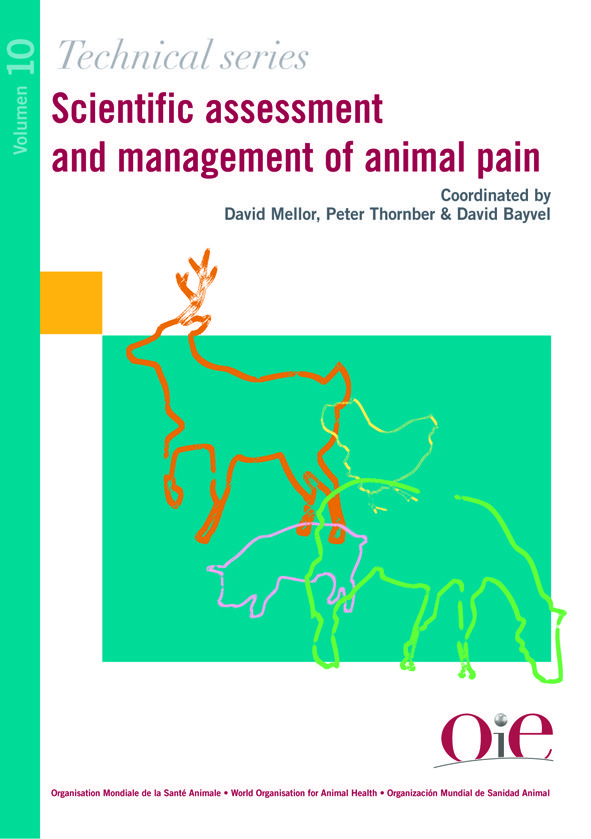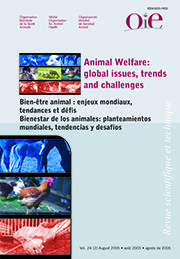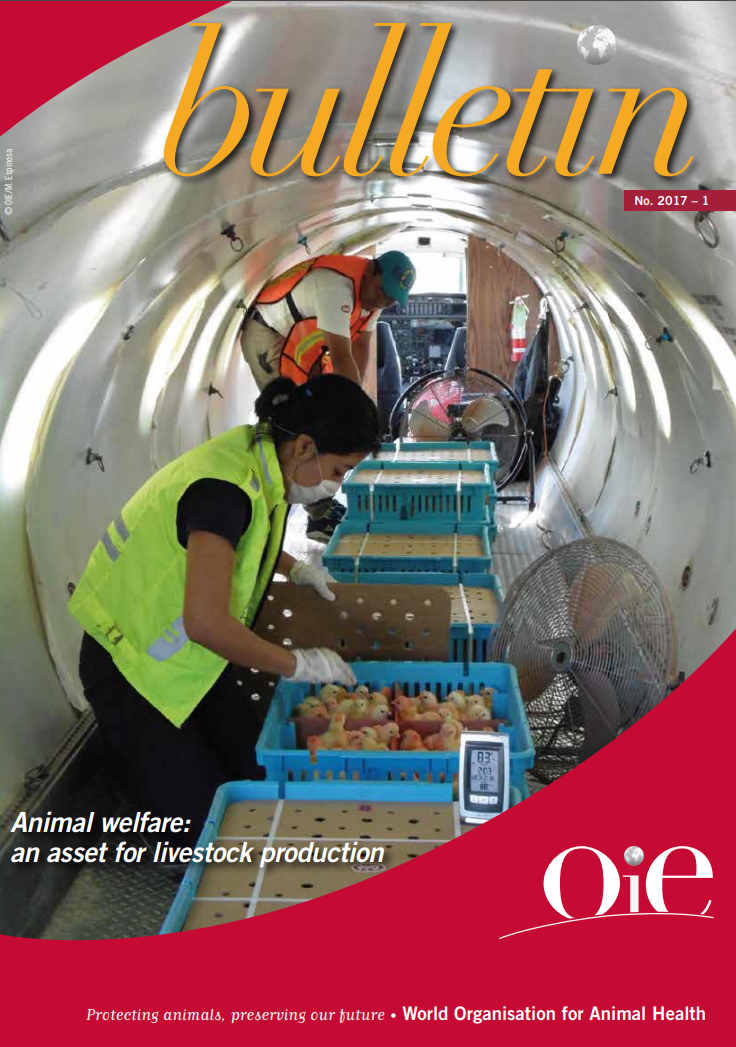Animal Welfare
Animal welfare is a complex and multi-faceted subject with scientific, ethical, economic, cultural, social, religious and political dimensions. It is attracting growing interest from civil society and is one of the priorities of the World Organisation for Animal Health (WOAH).

The guiding principles which inform the World Organisation for Animal Health’s work on the welfare of terrestrial animals include the ‘Five Freedoms’. Developed in 1965, and widely recognised, the five freedoms describe society’s expectations for the conditions animals should experience when under human control, namely:
Freedom from hunger, malnutrition and thirst
Freedom from fear and distress
Freedom from heat stress or physical discomfort
Freedom from pain, injury and disease
Freedom to express normal patterns of behaviour
The WOAH has developed international standards for the welfare of farmed fish (excluding ornamental species) in the Aquatic Code and advocates the use of ‘handling methods appropriate to the biological characteristics of the fish and a suitable environment to fulfil their needs’.
Our vision
Our definition of animal welfare
According to the Terrestrial Code, animal welfare means ‘the physical and mental state of an animal in relation to the conditions in which it lives and dies.’
Animal welfare is closely linked to animal health, the health and wellbeing of people, and the sustainability of socio-economic and ecological systems.
Perceptions of animal welfare differ from one region to another and between one culture and another, as do in the ways animals contribute to human society. It is for this reason that the WOAH’s work in developing international standards must have a solid scientific basis, must involve wide engagement of all stakeholders, must ensure a holistic view of the systems within which animals are kept and used by humans, and must aim to have a tangible impact on the welfare of animals.
The Global Animal Welfare Strategy aims to be a source of ongoing guidance for the WOAH’s activities in this area. Presented at the 4th Global Conference on Animal Welfare, in December 2016, the Strategy was adopted by all Members in 2017. It was developed to deliver: “A world where the welfare of animals is respected, promoted and advanced, in ways that complement the pursuit of animal health, human well-being, socio-economic development and environmental sustainability”.
The strategy focuses on the development of international standards on animal welfare. It was developed in consultation with Members and key international stakeholders, and emphasised the need for the development of the capacity of Veterinary Services, for improving the communication with stakeholders and governments to raise awareness on the welfare of animals and for supporting Members in the implementation of these standards.
Four Strategic Pillars
Development of animal welfare standards
Capacity building and education
Communication with stakeholders
Implementation of animal welfare standards and policies
This tab provides access to a range of tools and information on animal welfare and provides details of animal welfare events. Please feel free to use and distribute this information freely.
Informative documents
Animal Welfare Standard-setting activities
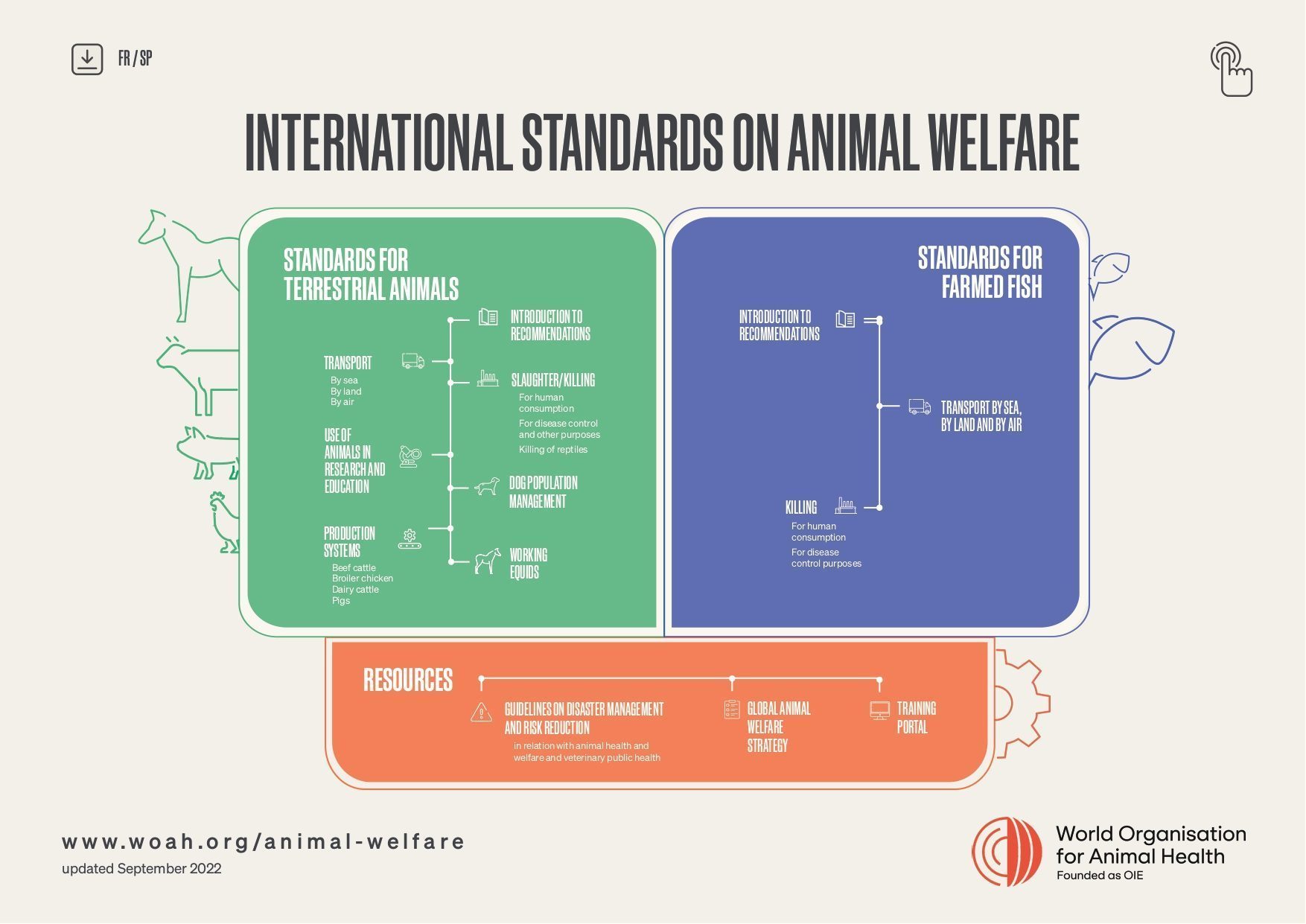
Guidelines
In addition to the standards published in the Terrestrial and Aquatic Codes, WOAH develops guidelines on different topics, depending on current events.
-
.pdf – 316 KB See the document
-
Strategic Plan
Global Animal Welfare Strategy
.pdf – 1 MB See the document
Animal Welfare during slaughter and killing
- Slaughter of animals
- Killing of animals for disease control purposes
- Compatibility between WOAH standards and the requirements of Islamic (in arabic)
- Activities at WOAH to protect pig welfare in the frame of African swine fever control measures
Research and education
- Discussion paper: WOAH’s Role in laboratory animal welfare
- Veterinary Education Core Curriculum DAY-ONE (2012)
- Veterinary Education Core Curriculum (WOAH Guidelines, 2013)
- Veterinary Paraprofessional competency guidelines (2018)
Working animals
- Discussion paper on the welfare of working animals
- WOAH’s activities to protect donkey health and welfare
Publications
Videos
Training DVD of the WOAH Improved Animal Welfare Programme
Welfare of working equids (in English with Spanish subtitles and in collaboration with ICWE)

